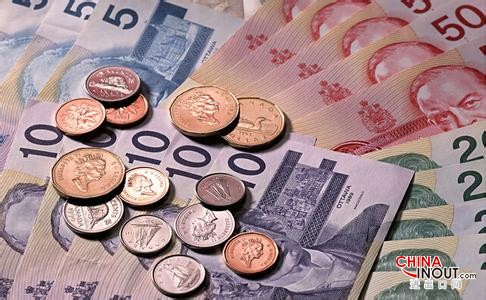
遭受衰退加劇、大宗商品價(jià)格下跌重創(chuàng),,還面對(duì)信貸危機(jī)風(fēng)險(xiǎn)的俄羅斯,,至少可以指望從盧布貶值獲得一個(gè)優(yōu)勢(shì):對(duì)華農(nóng)業(yè)貿(mào)易大幅飆升。
從巧克力到葵花籽油和動(dòng)物飼料,,在截止7月底的3個(gè)月里,,俄羅斯食品出口(尤其是從毗鄰其東方鄰國(guó)的地區(qū))出現(xiàn)指數(shù)級(jí)增長(zhǎng),成為盧布貶值帶來切實(shí)利益的少數(shù)例子之一,。盡管在今年頭6個(gè)月期間,,俄羅斯對(duì)華出口總體下降23.5%,但農(nóng)業(yè)出口額上升33%,,出口量增長(zhǎng)近80%,。
莫斯科農(nóng)業(yè)監(jiān)管機(jī)構(gòu)——俄羅斯動(dòng)植物防疫檢疫局(Rosselkhoznadzor)的高級(jí)官員阿列克謝?阿萊克延科(Alexei Alexeenko)最近表示:“中國(guó)過去總是想把自己的產(chǎn)品出口至我們的國(guó)家,但現(xiàn)在中國(guó)突然對(duì)俄羅斯農(nóng)產(chǎn)品產(chǎn)生了興趣,。就農(nóng)產(chǎn)品而言,,俄羅斯和中國(guó)有許多新的重大供應(yīng)項(xiàng)目,,涉及從豬肉到蔬菜的各種農(nóng)產(chǎn)品。”
在此過程中,,在過去一年里相對(duì)于美元貶值45%的盧布,,幫助鞏固了雙邊經(jīng)貿(mào)關(guān)系——從總體上說,俄中經(jīng)貿(mào)關(guān)系在實(shí)現(xiàn)兩國(guó)領(lǐng)導(dǎo)人的宏偉預(yù)期方面進(jìn)展緩慢,。
歐洲傳統(tǒng)上是俄羅斯最重要的貿(mào)易和投資合作伙伴,。面對(duì)烏克蘭危機(jī)帶來的政治后果,莫斯科承諾與亞洲(尤其是中國(guó))加強(qiáng)經(jīng)貿(mào)往來,。俄羅斯試圖用中國(guó)貸款取代被制裁掐斷的西方資金,,并簽署了巨額能源協(xié)議。
但中國(guó)的銀行對(duì)俄羅斯市場(chǎng)的業(yè)務(wù)態(tài)度謹(jǐn)慎,,雙邊貿(mào)易下降,,盡管降幅小于俄羅斯整體對(duì)外貿(mào)易的下降幅度,。
中俄經(jīng)貿(mào)合作的主體一向是小本經(jīng)營(yíng)的中國(guó)生意人,,現(xiàn)在他們當(dāng)中有許多人回國(guó),因?yàn)樗麄兊馁Q(mào)易業(yè)務(wù)的微薄利潤(rùn)隨著盧布貶值而消失,。
上月關(guān)了自己在莫斯科的服裝,、鞋和飾品店的龔宇(音譯)表示:“我們找不到地方可以削減成本。在這里銷售中國(guó)消費(fèi)品怎么也賺不到錢了,。”
然而,,新的投資者正在出現(xiàn)。自去年年末以來,,越來越多的中國(guó)代表團(tuán)訪問俄羅斯,,尋找可供出售或出租的農(nóng)地。
來自河南省的一位退休官員今年夏季考察了莫斯科地區(qū),、北高加索地區(qū)的達(dá)吉斯坦共和國(guó)和烏拉爾南部地區(qū)物色農(nóng)地,。他表示:“現(xiàn)在是來這里的好時(shí)機(jī),價(jià)格低,,當(dāng)?shù)厝艘哺敢庾饨o我們,。”
在最靠近蒙古、中國(guó),、朝鮮和日本的俄羅斯遠(yuǎn)東地區(qū),,這種趨勢(shì)甚至更為明顯,中國(guó)農(nóng)業(yè)投資者早就在這里立足,。國(guó)有和私營(yíng)農(nóng)場(chǎng)——大多來自中國(guó)東北的黑龍江和吉林——一直在濱海邊區(qū)(Primorye),、猶太自治州(Jewish Autonomous Region)、阿穆爾(Amur)和哈巴羅夫斯克(Khabarovsk)等俄羅斯邊境地區(qū)租賃土地,。
全家在猶太人自治區(qū)經(jīng)營(yíng)農(nóng)場(chǎng)的年輕人廖紅(音譯)表示:“我們過去為俄羅斯市場(chǎng)生產(chǎn)蔬菜,,但現(xiàn)在我們只保留一些蔬菜自用,,其余蔬菜運(yùn)回國(guó)內(nèi)銷售。”
較大的投資者也在加入這種潮流,。
中國(guó)主權(quán)財(cái)富基金——中國(guó)投資公司(CIC)的副總經(jīng)理謝平表示:“農(nóng)業(yè),、水產(chǎn)養(yǎng)殖業(yè)……我們將認(rèn)真研究在邊境地區(qū)推進(jìn)這些行業(yè)。”中投稱,,過去7年里在俄羅斯投資了大約70億美元,。
俄羅斯公司也受益于更為有利的匯率。國(guó)有的俄羅斯農(nóng)業(yè)集團(tuán)(RusAgro)去年開始向中國(guó)出口葵花籽油,。與此同時(shí),,遠(yuǎn)東聯(lián)邦管區(qū)(Far Eastern federal district)的俄羅斯巧克力和糖果制造商報(bào)告稱,在截止今年8月的季度里,,對(duì)華銷售增長(zhǎng)了11倍,。
但中國(guó)對(duì)俄羅斯食品不斷增長(zhǎng)的需求并未受到無條件的歡迎。
許多俄羅斯當(dāng)?shù)毓賳T指責(zé)中國(guó)農(nóng)業(yè)投資者過度開發(fā)土地,,對(duì)俄羅斯資源造成長(zhǎng)期破壞,。
猶太自治州州長(zhǎng)亞歷山大?萊溫塔爾(Alexander Levintal)表示:“中國(guó)人全都種植大豆。大豆是很好的農(nóng)產(chǎn)品,,它們很容易出口中國(guó),,但專家說,我們必須采用輪作方式,。”
最近在符拉迪沃斯托克(Vladivostok,,即海參崴——譯者注)舉行的一場(chǎng)會(huì)議上,俄方試圖說服來自亞洲鄰國(guó)的潛在投資者從投資于原材料轉(zhuǎn)向投資于附加值更高的產(chǎn)品,。
萊溫塔爾表示:“我希望,,他們?cè)诙砹_斯將不只種植大豆,而且還建造加工廠,。”
俄羅斯遠(yuǎn)東地區(qū)(只有500萬人口)如何在不損害自身利益的情況下,,與逾1億人口的中國(guó)東北地區(qū)打交道。莫斯科想要確保東西伯利亞基本上未被開發(fā)的廣袤土地不會(huì)成為中國(guó)的附屬資源,,并將此視為俄羅斯的國(guó)家安全問題,。
俄羅斯國(guó)家杜馬(即聯(lián)邦下議院)副議長(zhǎng)伊戈?duì)柫袆e捷夫(Igor Lebedev)表示:“我們不能將那里太多的土地交到中國(guó)人的手里。長(zhǎng)期而言,,那將威脅到我們的主權(quán),。”(中國(guó)進(jìn)出口網(wǎng))
Battered by a deepening recession, lower commodity prices and the prospect of a credit crunch, Russia can count at least one advantage of having a devalued national currency: soaring agricultural trade with China.
Russian exports of foodstuffs, ranging from chocolate to sunflower oil and animal fodder, increased exponentially over the three months to the end of July, especially from regions close to Russia’s eastern neighbour, in a rare example of tangible benefits of the weaker rouble. While overall Russian exports to China dropped 23.5 per cent in the first six months of this year, agricultural exports are up 33 per cent in value terms and almost 80 per cent in volume.
“China always wanted to export its own products to our country, but now China is suddenly interested in Russian agricultural products,” Alexei Alexeenko, a senior official at Rosselkhoznadzor, Moscow’s agricultural watchdog, said last week. “With regard to agricultural products, Russia and China have many new very significant supply projects. They range from pork to vegetables.”
In the process a weaker rouble, which has shed 45 per cent of its value to the US dollar over the past year, has helped cement a bilateral economic relationship that has otherwise been slow to meet the ambitious expectations set by leaders in Moscow and Beijing.
Amid its political fallout over Ukraine with Europe, traditionally Russia’s most important trade and investment partner, Moscow has pledged to step up economic ties with Asia, and particularly with China. It has been trying to replac western funding — blocked by sanctions — with Chinese loans, and signed big-ticket energy deals.
But Chinese banks have approached the Russian market with caution, and trade between the two countries has shrunk, albeit to a lesser extent than Russia’s overall foreign trade.
Many of the small-time Chinese entrepreneurs who long formed the bulk of economic co-operation with Russia have returned home as the thin margins of their trading businesses evaporated with the dro of the rouble.
“There is nowher else wher we can cut cost. There is simply no longer a profit to be made from selling Chinese consumer goods here,” says Gong Yu, who closed her business selling clothing, shoes and accessories in Moscow last month.
However, new investors are appearing. Since the end of last year, a growing number of Chinese delegations have been visiting Russia in search of agricultural land for sale or lease.
“This is a good time to come here, prices are low and locals are more willing to rent to us,” said a retired official from the central Chinese province of Henan who toured the Moscow region, the north Caucasus republic of Dagestan and the southern Urals this summer to look at agricultural land.
In the Far East, the Russian region closest to Mongolia, China, North Korea and Japan, this trend has been even more pronounced as Chinese agricultural investors have long been present there. State-owned and private farms, mostly from the north-eastern Chinese provinces of Heilongjiang and Jilin, have been leasing additional land in the Russian border regions of Primorye, the Jewish Autonomous Region, Amur and Khabarovsk.
“We used to produce for the Russian market, but now we only keep some of our vegetables for our own consumption and sell the rest back to China,” says Liao Hong, a young man whose family runs a farm in the Jewish Autonomous Region.
Larger investors are also jumping on the bandwagon.
“Agriculture, aquaculture?.?.?.?we’ll take a good look at these in the regions close to the border going forward,” said Xie Ping, executive vice-president of China Investment Corporation, the sovereign wealth fund, which claims to have invested about $7bn in Russia over the past seven years.
Russian companies are benefiting from the more advantageous exchange rate as well. State-owned Rusagro started exporting sunflower oil to China last year. Russian chocolate and confectionery makers in the Far Eastern federal district, meanwhile, have reported an eleven-fold increase in sales to China over the quarter to August.
But China’s growing hunger for Russian foodstuffs does not meet with an unconditional welcome.
Many local officials accuse Chinese agricultural investors of over-exploiting the land and doing long-term damage to Russia’s resources.
“The Chinese all plant soybeans. Soybeans are a good product, and they export well to China, but experts say we have to do crop rotation,” said Alexander Levintal, governor of the Jewish Autonomous Region.
At a recent conference in Vladivostok, the government tried to convince potential investors from neighbouring Asian countries to transition from investing in raw commodities to more value-added goods as well.
Mr Levintal said: “I hope that they will not only plant soybeans but also build processing facilities in Russia.”
More fundamentally, there are questions over how Russia’s thinly populated Far East, with a population of just 5m, interacts next to more than 100m people in north-east China without compromising its interests. Moscow considers it a matter of national security to make sure its vast expanses of largely empty land in eastern Siberia will not become a resources appendix for China. 更為根本的是,人們質(zhì)疑,,人口稀少的
“We must not put too much of our land out there in the hands of the Chinese,” says Igor Lebedev, a deputy speaker of the state Duma, Russia’s parliament. “In the long term, that will become a risk to our sovereignty.”











